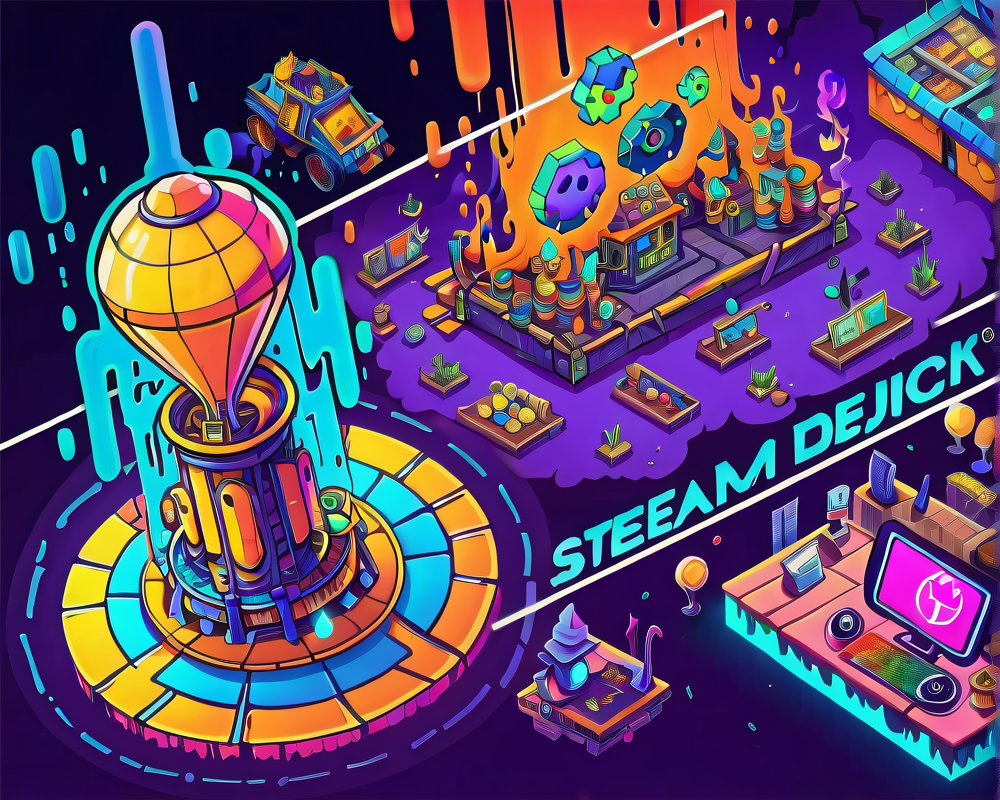The Great Crypto Heist: Steam vs. Abstractism
In a recent plot twist that even the most seasoned gamers might have difficulty fathoming, Valve Corporation took down the indie game Abstractism from its digital shelves, Steam, over serious allegations of cryptojacking. Imagine being all set for the next great adventure, only to find out your computer was busily mining cryptocurrency instead. Talk about an unexpected DLC!
What’s the Deal with Abstractism?
Launched on March 15, Abstractism quickly morphed from a game into a mystery thriller. Players reported seeing setup files resembling Trojan viruses and malware that danced under the guise of Steam processes. Before you could say ‘keep calm and game on,’ users discovered that their computers were being exploited to mine Monero, a crypto currency nestled snugly in the underbelly of the blockchain world.
Red Flags Galore!
Warning bells didn’t just ring but pealed in unison when players realized that the developers were prompting them to keep the game active even when not in actual gameplay. In exchange for this dedication, they promised rare in-game rewards. I guess in their world, mining for crypto was an unexpected side quest.
But that’s not all! The Steam Community had its gossips ablaze with allegations of in-game scams that used visually identical items to those from popular games like Team Fortress 2, leading to speculation that this was some sinister ploy to trick unsuspecting purchases.
Shock and Awe: Gamer Reactions
As it turns out, gamers are pretty sharp and quick on the draw. YouTuber SidAlpha, along with a few others, noticed Abstractism consumed a massive bite of system resources. Between the alarm bells and the resource hogging, the writing was on the wall. Their computer systems weren’t just busy playing games; they were almost working overtime!
Defense of the Developers
In a dramatic defense, Okalo Union, the developer behind this controversy, claimed that the increased resource usage was simply due to the game being played on high graphics settings. “Abstractism does not mine any cryptocurrency,” they proclaimed, tossing blame back onto the players’ graphics settings. But is that truly a believable explanation, or just a smoke screen?
A User’s Stirring Response
As is often the case in the digital world, not everyone was ready to take the bait. One brave user, unabashedly fired up, replied, “[Expletive]. You shouldn’t be on this platform, you f***ing scam artist.” Clearly, the community isn’t backing down lightly, and you can almost hear the virtual pitchforks being sharpened.
The Aftermath of the Drama
This debacle has left many pondering the role of indie games in gaming communities. Will players remain wary? Or will there be a return to trust? In a world where Bitcoin was once a welcomed payment method on Steam, the recent crypto upheaval might lead Valve to take a second glance at the indie games that pop up on their platform. For now, gaming aficionados can breathe a sigh of relief as Steam continues to sift through its already rich library to ensure safety from lurking rogue titles.




